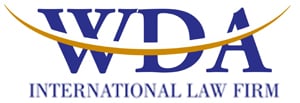CAROL COULTER, Legal Affairs Editor
THE SUPREME Court has reserved judgment in a case where two directors of two linked companies are claiming the misappropriation of the companies’ intellectual property by two other directors.
The companies were set up in 2001 to produce and distribute a product invented by one of them, Allan Owen.
The product separated water from oil removing liquid greases, fat and oils from waste water before it went into the drainage system.
The companies owned the patent for the separator for Ireland, Britain, France, Germany, Belgium and the Netherlands.
The shareholders and directors were Jonathan Owen, son of Allan, both living in England, Kevin McCabe and James Glynn, Irish businessmen previously in business together and Stephen Leyland from Northern Ireland.
The five had equal shareholdings and 80 per cent agreement was necessary for major decisions and transactions. There were also clauses in the agreement setting up the company relating to non-competition and trade secrets.
In about October 2003, relations between Mr McCabe and Mr Glynn and the other three shareholders deteriorated. In 2005, they took proceedings in the High Court alleging that Jonathan and Allan Owen had acted in a way contrary to their interests and that of the companies in various ways.
They claimed that Allan Owen had conspired with his son and various third parties in the US to incorporate various companies to which he provided drawings, trade secrets, intellectual property and confidential information.
Mr McCabe also learned of the manufacture in China of products allegedly using Fatstrippa technology and their planned importation into the US. The plaintiffs and Mr Leyland were unaware of any of this until an investigation into the companies’ affairs in Britain.
Allan Owen and his son acknowledged certain of the alleged activities and that these had been undertaken without disclosure to the remaining members of the board.
According to the statement of claim, the company retained Arthur Cox solicitors to take the necessary steps in the US to enable the seizure of counterfeit separator produce there.
The two plaintiffs also sued Mr Leyland, who became chairman of the board during the dispute, claiming he refused to sanction this action on the part of Arthur Cox and had sought to remove Mr McCabe as managing director.
When the case came before the High Court, Ms Justice Mary Finlay Geoghegan said she had to decide on a preliminary issue – whether the two plaintiffs could take the action in the light of company law restricting the rights of a minority to take action against a majority except in certain circumstances.
Ms Justice Finlay Geoghegan found the decision on pursuing the claims should be taken by a majority of the board of directors and/ or shareholders in a general meeting. She concluded that the plaintiffs, as minority shareholders, had failed to establish that they should be permitted to pursue the action.
In appealing against this in the Supreme Court yesterday, Mr McCabe, who represented himself and Mr Glynn, said that 99 per cent of the assets of the company had been misappropriated and Ms Justice Finlay Geoghegan was wrong to not take account of the admissions of wrongdoing and the breach of undertakings to the court. She also failed to acknowledge that the three defendants were controlling the company.







